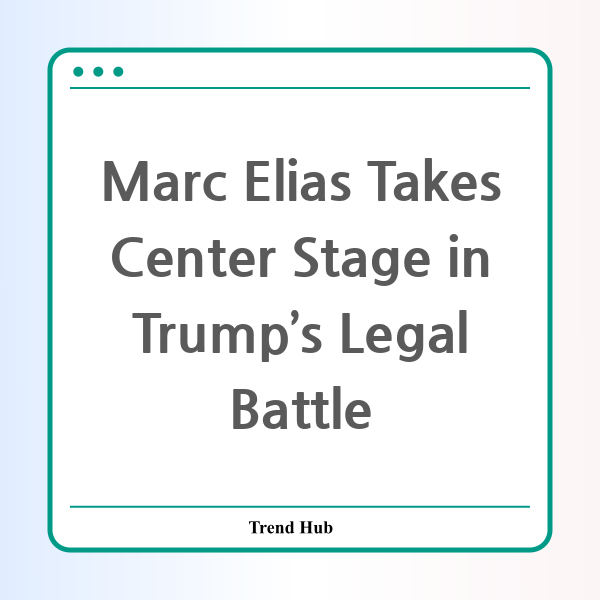* This website participates in the Amazon Affiliate Program and earns from qualifying purchases.

What happens when a prominent political figure hits back against the legal community? Recent events surrounding the controversial actions of a former president and the legal implications that followed offer a fascinating glimpse into the intersection of politics and law. This ongoing battle between the Trump administration and various law firms, particularly spotlighting the actions of attorney Marc Elias, reveals the daunting realities of wielding power in America.
In a recent episode of a popular newsmagazine, a striking narrative unfolded depicting the intense friction between Donald Trump and several legal entities. Following the fallout from his presidency and the subsequent lawsuits he initiated, the media spotlight has shone brightly on Trump's attempts to impose his will on the legal landscape.
The recent coverage outlined how Trump issued sweeping executive orders aimed at law firms that he accused of being hostile to his administration. As depicted, he sought to bar certain attorneys from federal courts and rescind government contracts with law firms that resist his agenda. This draconian maneuver has been compared to tactics employed by organized crime to intimidate rivals—a stark connection made by Marc Elias, a lawyer and fierce opponent of Trump’s legal maneuvers. Elias's insight encapsulates the strife within the legal profession today.
Elias, known for his legal battles against Trump during the 2020 election campaign, warns that these executive orders threaten not only individual law firms but the integrity of the entire legal system. He likens the pressure exerted by Trump to that of a mob boss demanding compliance. Such tactics, if unchecked, could erode the bedrock principle of justice—the impartiality of legal representation.
Law firms across the nation are grappling with the fallout from Trump's orders. Many firms have struck deals to provide free legal services for initiatives aligned with the former president, fearing retribution otherwise. Nine major firms reportedly have made arrangements to offer nearly $1 billion in legal services to causes championed by Trump. This alarming trend raises fundamental questions about the fairness and ethics of legal practice under such coercion.
Illustrating the gravity of the situation, legal professionals have expressed their concern over the compromise of legal ethics. As one attorney resigned from a prominent firm in protest, the conflict underscores the moral dilemma faced by legal practitioners in a politically charged environment. The once-clear separation of law and politics appears to be blurring, as lawyers find themselves navigating treacherous waters.
Moreover, the backlash directed at media outlets covering these developments is troubling. Attempts to silence criticism or manipulate coverage in favor of political agendas threaten the very essence of journalistic freedom. As events unfold, the legal profession and the media play crucial roles in maintaining accountability for those in power. Faced with a politically motivated environment, the resilience of both sectors will be tested.
In conclusion, the saga transcends mere political rivalry; it speaks to the potential perils of authoritarianism when power is unrestrained. The implications of Trump’s actions and Elias’s determined responses highlight an urgent need for dialogue about the state of our democracy and the role of the legal system within it. The events of today will shape the future of the legal profession and could influence how power dynamics play out in America.
* This website participates in the Amazon Affiliate Program and earns from qualifying purchases.